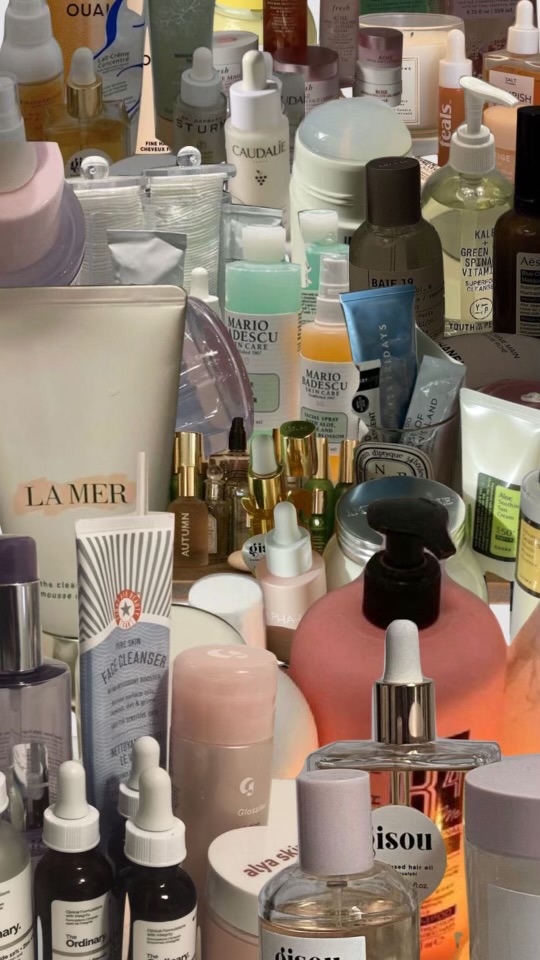Oh, to see me through the dissociated lens of an archaic Polaroid
If given the chance, I’d look at the world through the lens of a classic Polaroid: entirely uninvolved and yet vulnerably involved.
She gets out of bed, sometimes well-rested but often depleted and frazzled, her monstrous hair encompassing her face rather than framing it.
Her alarms didn’t get even remotely close to waking her. She always sleeps deeper than most, sometimes almost worrisome to her parents when they try and wake her. Of course, it always ends up working on the third or tenth attempt.
Once up, she plays whatever songs are on her mind to motivate her to get ready: most commonly including repeats of the same Lizzie McAlpine songs at least twice, as well as any assortment of songs from her ninety-five-hour-long primary playlist.
But when tomorrow comes, she reneges on her promise because she knows that others deserve that spotlight more than she does.
Sitting on the ottoman perched in front of her vanity, she turns on the HappyLight, shocking herself with the surge of brightness. She never looks at herself right away—perhaps it’s because she couldn’t see without her contacts if she tried, or perhaps it’s because she simply doesn’t want to see the horrendous mess of a head of hair she currently possesses. Either way, she gives herself a moment to allow the music a place in her mind before putting in her contact lenses, forcing herself to commit to the day.
She chooses four different pairs of pants and six different shirts, then gets sick of trying to decide and wears the easiest option. Her shoes stay the same almost every day: the same maroon Converse with wool on the tongue. It’s the safest option. No change means no consequence.
Eventually, she leaves for the day. On a normal weekday, it’s not for nine or ten hours until she returns to her bedroom. When she does, despite her exhaustion, she hesitates to allow herself to sleep.
Lying motionless on her bed, she stares at the ceiling, recounting her day and thinking of all the things she wishes she’d done or said.
She formulates a rendition of herself in her mind and promises that she’ll live up to it tomorrow. But when tomorrow comes, she reneges on her promise because she knows that others deserve that spotlight more than she does.
She completes her nighttime tasks in a mindless haze: removing her makeup, taking her medications, and over-analyzing every little blemish on her skin.
The wilted flowers next to the mirror catch her eye every time. The once-yellow rose—almost exactly one year old, from one of the most difficult days of her life—next to the browned red carnation, given to her by a stranger at the mall on her first date. There’s a constant influx of usually inaccessible emotion upon seeing the reminders of the highest highs and the lowest lows of her life simultaneously.
Some nights, she goes straight to bed after her nightly routine, but others, she thinks. She thinks about every little thing that enters her busy brain. She thinks about all the possibilities of every situation that’s even been suggested to occur in her life. There’s nothing her mind won’t touch on, especially when it comes to the future of her relationships with those she loves.
She thinks about whether she will ever use the fifty-year-old telescope from her late grandpa. She thinks about the meaning of life and what happens after.
But one thing stays consistent while all else changes: she never looks at herself through my eyes. She sees only her faults; only her imperfections. I see everything: her imperfections and her idiosyncrasies blend in a way that makes her an amazingly unique person. The thrifted Polaroid from 1947, maintaining my spot on her bookshelf with all the classic books and other trinkets from my time and many others; I see a side of her that nobody will ever see.
Not even Eva herself will see it. Not in full. But I will.

Eva LaBeau is a senior entering her second year on The Central Trend. She takes on everything she does with great passion, specifically when relating to...


























































































Dad • Mar 13, 2023 at 8:17 pm
You are a wonderful and imaginative writer, young lady. I’d love to meet you in person!